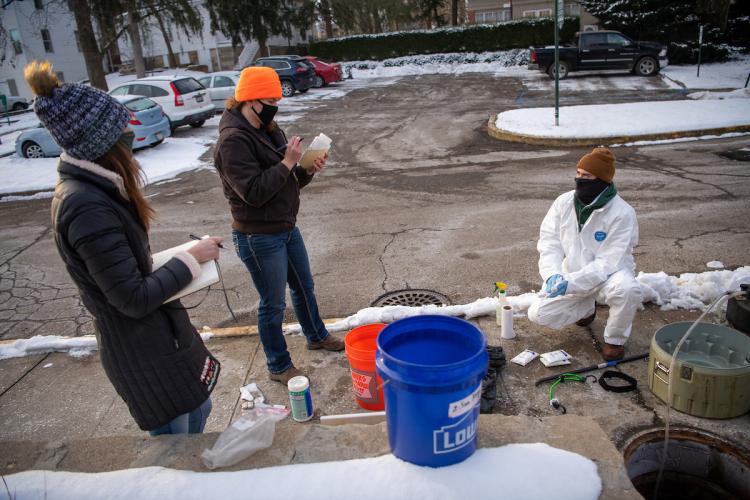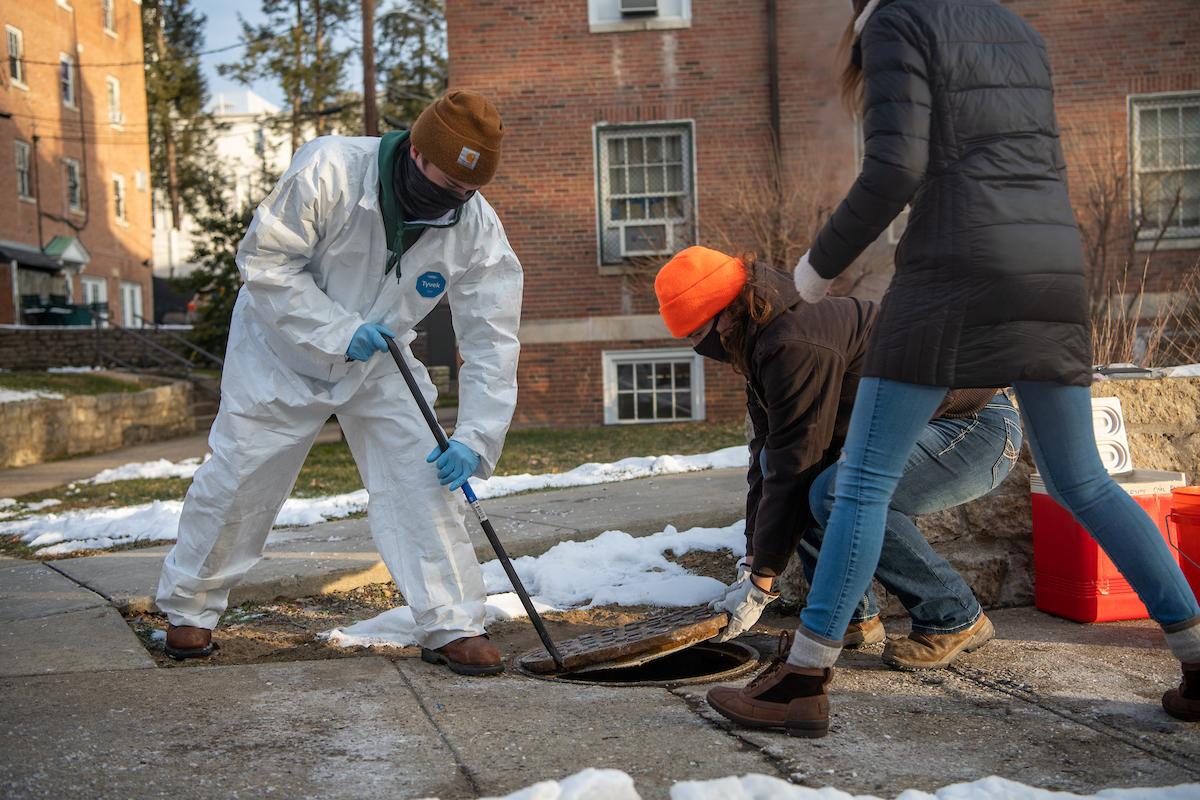
OHIO professors help monitor COVID-19 on campus with wastewater surveillance

Ohio University professors Guy Riefler, Ph.D., and Karen Coschigano, Ph.D., are monitoring and analyzing campus wastewater to look for possible trends of COVID-19 this semester.
The new project officially started in January, and is made possible by funding from Ohio State University’s Ohio Water Resources Center. The two professors, with assistance from students, will oversee the project for the entire spring semester.
“One of the real advantages of looking for COVID-19 this way is that people shed the virus before they express symptoms and if people are asymptomatic, they will also shed the virus without knowing they’re infected,” Riefler, civil engineering chair and professor in the Russ College of Engineering and Technology, said. “When you collect the samples in the wastewater and analyze them, you can get a result a day after collecting the sample and that can be one to two weeks before the individual even knows they’re infected.”
Seven undergraduate students will assist Riefler with overseeing the collection of wastewater samples. A graduate student will help Coschigano, associate professor of molecular and cellular biology in the Heritage College of Osteopathic Medicine, analyze the samples.
Riefler’s team places wastewater collection bottles at five manhole locations across OHIO’s campus on Sundays and Wednesdays. They use a machine called an autosampler that hangs into the manhole and automatically collects water every hour for 24 hours, compiling the samples into a single bottle. After 24 hours, Riefler and his students take the bottles to Coschigano for analysis.

“We want to get an average sample of what’s in the water all day long,” Riefler said. “This is not something that I could have done without the students’ help. I’ve been escorting them the last couple of sampling trips and they’ve been great.”
Coschigano has developed an assay to test the samples, conducting reverse transcription quantitative polymerase chain reaction (RT-qPCR) assay testing to search for the presence of four RNA sequences: from a non-pathogen virus to indicate the presence of human waste, a non-human-pathogen virus she adds to each wastewater sample to monitor RNA extraction efficiency and two regions of SARS-CoV-2.
“These assays are extremely technical and I’ve had to develop them to some extent – no one is doing the assay exactly like I’m doing anywhere,” Coschigano said. “I think I’ve finally gotten the process pretty streamlined.”
Coschigano’s eventual goal is to turn results around in the same day, with the support of her graduate student.
The data from the wastewater samples are then shared with Gillian Ice, Ph.D., M.P.H., special assistant to the president for public health operations and Heritage College professor of social medicine, and others to aid in the University’s coronavirus response.
Riefler and Coschigano do not believe any data should be surprising due to OHIO’s stringent testing program of students living on campus, which includes weekly asymptomatic testing. However, the two believe it can still help identify trends on campus and support the overall coronavirus response.
“More of what we’re going to be looking for are trends,” Coschigano said. “Our entire team has to be very consistent with what we’re doing and try to replicate that with each sample collection and assay so that we can look for trends between the collections.”
“From a health perspective, our results support other initiatives that are already going on for the University,” Riefler said.
The project will continue until students leave the residence halls this semester. Riefler and Coschigano also want to help the City of Athens with wastewater monitoring during the pandemic and contribute to the general long-term benefits of wastewater monitoring after the pandemic ends, to look at future diseases and trends.
“Eventually, surveillance might also be useful even once the pandemic is over, to help identify possible future outbreaks,” Coschigano said. “I think there will be long-term usefulness for this method.”
